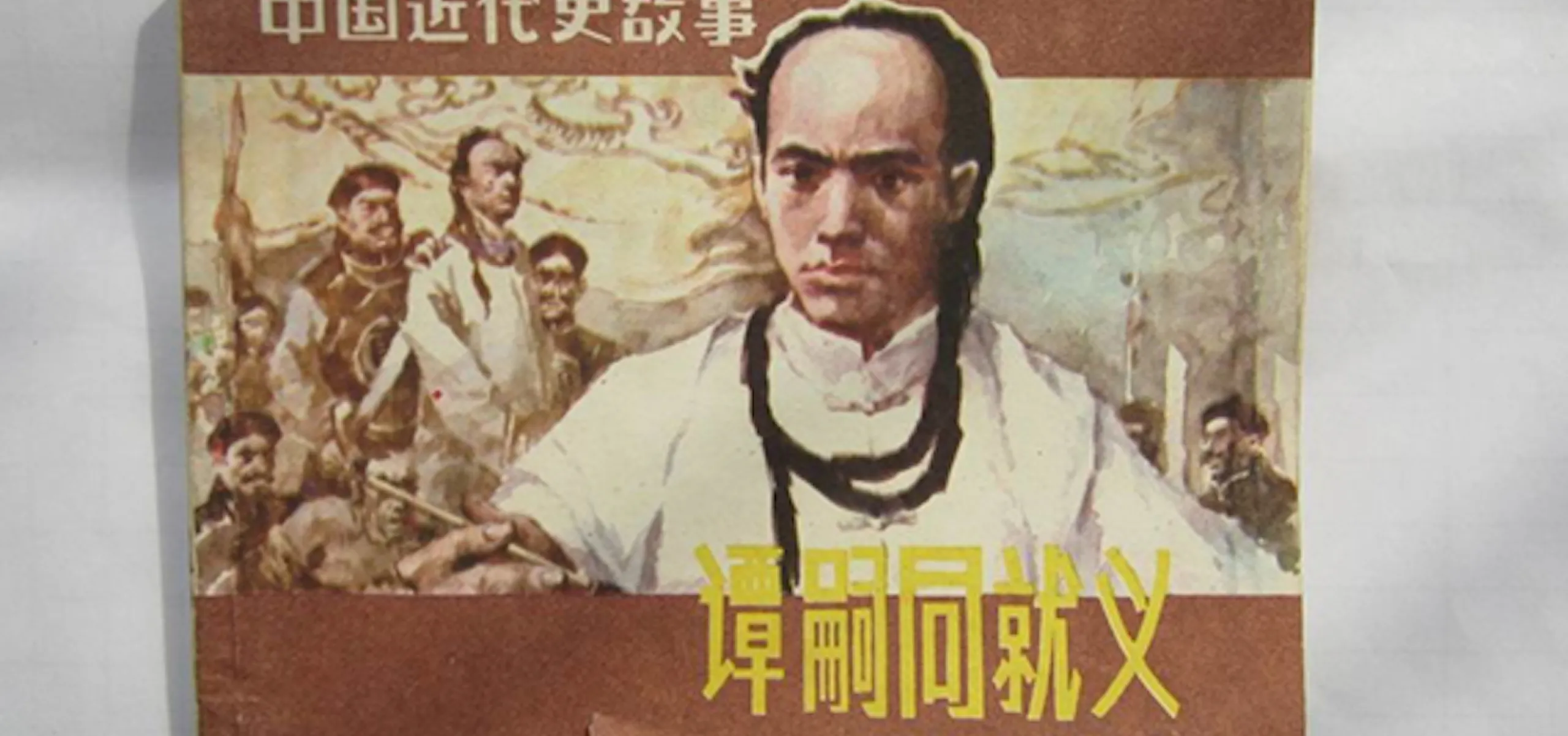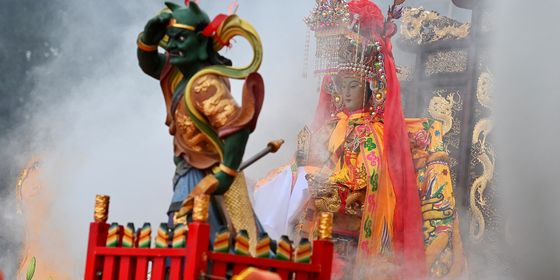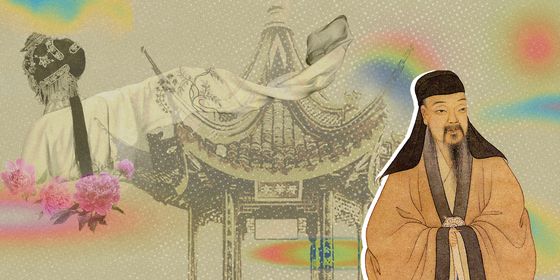He was a fighter, a philosopher, a romantic poet, a dreamer, and, finally, one of China’s most celebrated martyrs
He was one of the most fascinating and tragic figures of China’s long 19th century, and a shining intellectual star who had only just begun to develop his full philosophical and political potential. But Tan Sitong instead died young, in a blaze of glory as a martyr to the cause of restoring his emperor—and friend—to power.
Tan Sitong was born in Beijing on March 10, 1865. His father, Tan Jixun, was a prominent official originally from Liuyang in Hunan Province. Growing up in Hunan, Tan had an unhappy childhood. Like many children in official families, he rarely saw his father and Tan Sitong’s mother, brother, and sister died in a diphtheria outbreak when he was only 12 years old. Tan Sitong survived, but his relationship with his father’s new wife was tense. There are stories that she was cruel and abused the sensitive young man.
Tan Sitong responded by devoting his time to study; although not always in the subjects expected from the scion of an elite family. He wrote poetry. Read novels and stories of ancient heroes and took time away from his books to practice swordsmanship and martial arts. Tan’s unorthodox approach to his learning frustrated his father, a conservative man who feared his son’s non-conformity would hurt the boy’s chances for an official career.
In the end, the father was right. Tan was a precocious intellect and a brilliant writer but had nothing but disdain for the rigid conventions of exam preparation. Despite Tan Sitong’s obvious talent, he never achieved exam success beyond the county level xiucai designation.
Married at 19, Tan soon experienced another tragedy when his young son died less than a year after he was born. While he remained married to his wife, Tan escaped heartbreak by pursuing his eclectic passions. He traveled throughout the empire, first serving as a military officer in the far west. In 1884, Xinjiang had just been formally made a province of the Qing Empire, and Tan served as a junior officer on the staff of its first governor, Liu Jintang.
After his service, Tan lived the life of a rootless and restless scholar. He explored ruins, visited libraries, and cultivated friendships with other talented young men. It was during this time that Tan also began developing his worldview and philosophy, eventually published in 1898 as 仁学 renxue, a title translated variously as A Study of Benevolence or The Study of Humanity. Tan’s philosophy was an eclectic mix of Confucianism and Buddhism which also drew on Tan’s interest in Western political thought and Christianity. Tan was futher influenced by intellectual mentors such as the Confucian reformer Kang Youwei, who was reinterpreting Confucianism to accommodate his reformist and universalist beliefs, and Yang Wenhui, who had served in the Qing Legations in London and Paris and was an advocate of learning from the West.
Eventually returning home to Hunan, Tan was soon caught up in the reformist fervor of the times. The shocking loss to Japan in the 1894-1895 Sino-Japanese War and the subsequent humiliating treaty signed by the Qing court had galvanized a generation. In Changsha, the capital of Hunan, Tan helped establish an Academy of Current Events and asked another brilliant young scholar Liang Qichao, like Tan a protégé of Kang Youwei, to serve as the chief lecturer. Tan worked with the Academy while also serving as the editor of Hunan’s first newspaper, the 湘学新报 xiangxue xinbao. The non-conformist youth turned man of action turned philosopher/drifter had finally found his calling: political activist.
While Tan was in Hunan writing, giving speeches, and promoting the cause of reform and modernization in that province, his mentor Kang Youwei was in Beijing. Starting in 1895, Kang Youwei sent a series of petitions and memorials to the throne hoping to push the young Emperor Guangxu, then only 23, to make the substantive changes Kang felt were necessary to save China from ruin.
Finally, in June of 1898, Kang Youwei was granted his audience with the emperor. Over the next 100 days, under the influence of Kang and his students, including Tan Sitong and Liang Qichao, the throne issued an astonishing series of edicts. The reforms included education (abolition of outdated essay models; establishment of an imperial university), politics (abolition of redundant posts and sinecure positions), industry (promoting railway construction; developing industry and commerce), as well as the preparation of a national budget.
The scope of the reforms shocked the emperor’s aunt, The Empress Dowager Cixi. While officially living in retirement in the Summer Palace, she was still the power behind the throne. She worried that the success of these reforms would weaken the dynasty and, of perhaps greater importance, diminish her personal power. She asked the Manchu official Ronglu to devise a scheme to depose the emperor.
Hearing of Cixi’s machinations, the reformers quickly marshaled their own allies. Tan, once again the man of action, volunteered to organize the counter-coup. Tan met with Yuan Shikai, another young official and a rising star in the Qing military, to try and convince Yuan to support the reformers and defend the emperor. Throughout the night, Tan worked to convince Yuan of his plan: Yuan Shikai and his troops would besiege the summer palace and execute Ronglu while Tan would organize a team to infiltrate the compound and assassinate the Empress Dowager. Yuan listened to the plan but refused to throw his lot in with Kang Youwei and Tan Sitong. Later, Yuan would write that the only reason he listened to the plot at all was because he believed Tan Sitong had brought a pistol to the meeting and felt that the hot-headed Hunanese wouldn’t have been above shooting Yuan if the parley went badly.
In the end, Yuan Shikai informed Ronglu and the Empress Dowager of the planned counter-coup. The Guangxu Emperor was put under house arrest on an island in Zhongnanhai, the imperial gardens just to the west of the Forbidden City. Kang Youwei, under British protection, fled first to Hong Kong and then to Japan, while the Japanese legation gave shelter to Liang Qichao. Tan Sitong, however, chose not to flee the capital. At first, he tried to recruit a band of martial artists to accompany him on a daring palace raid to free the emperor. When it was clear the emperor was beyond rescue, Tan returned to his lodgings in Beijing just south of the Xuanwumen. On the morning of September 25, 1898, imperial guards stormed through the gates of the courtyard and arrested Tan. Two days later, he was beheaded, along with five other conspirators, at the Caishikou Execution Grounds. Tan Sitong was only 33 years old.
For many Chinese, Tan Sitong is remembered best for his last words. While he was in prison awaiting execution, Tan wrote: “I have the will to kill enemies, but I don’t have the power to revert fate; I will die on the right path and it’s truly a pleasure.” His decision to become a martyr to the cause of reform is celebrated to this day. “Every reform in every country involves blood,” He wrote. “As for China, if there has to be blood and sacrifice, please start from me.”












